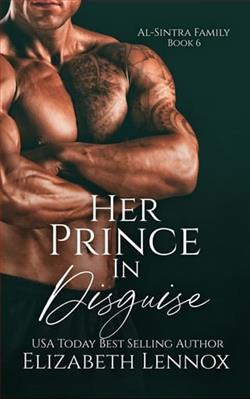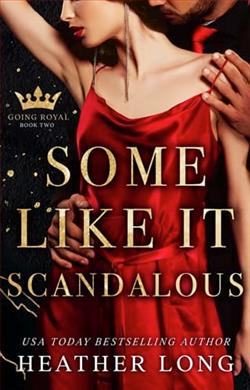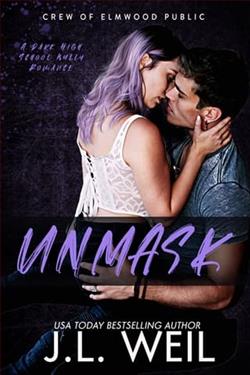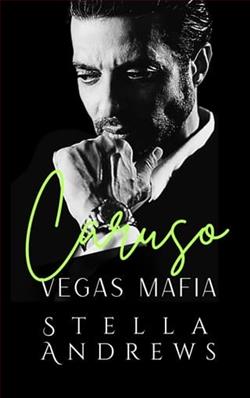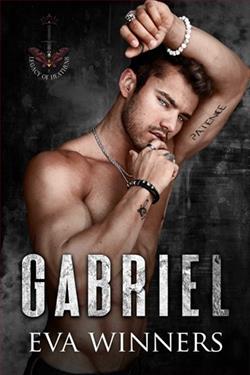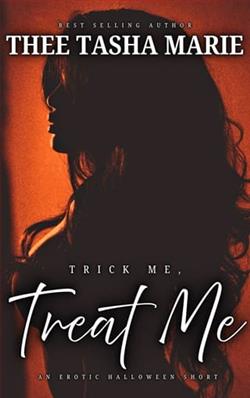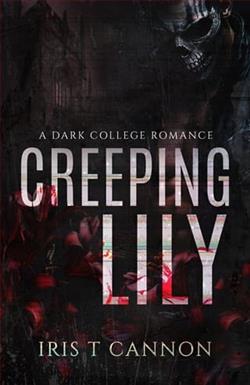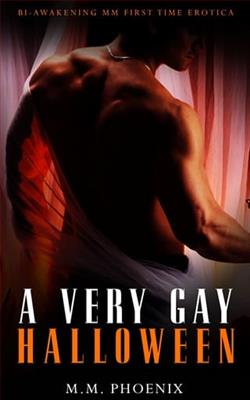Page 13 of A Court of Sugar and Spice
I open the door on the left, while Clara ventures into the room on the right.
The space I enter is dark, but when I fumble along the wall by the door, I locate a thin gas line, which I follow up to a lamp. When I turn the switch, a long room comes into view, lined with heavy cabinets, drawers, and shelves. Green and amber bottles glimmer in the gaslight, each glass surface bearing a pasted label in swirling script. The drawers are labeled too, but I don’t take time to read the words.
My gaze sweeps over a broad worktable, covered with wooden trays. The bottom and sides of some trays bear dark splotches, as if old blood has saturated the wood so many times it can’t be scrubbed out.
Between the trays are small brackets containing tiny glass tubes, scalpels, pens, and other items I can’t identify.
There’s another table at the far end of the room, big enough for a very tall, very broad man to lie on it. Unlit gaslamps branch over it, and hanging from the table’s edges are manacles and shackles that look to be made of iron, though I can’t see them clearly in the gloom.
But the main feature of the room stands to my right. An upright circular frame, taller than I am, woven of leafless branches and coiling roots. It seems to have grown right out of the floorboards.
There’s nothing inside it, nothing beyond it. It is simply a round doorway—to nowhere.
“My god,” I say faintly. “I think I found it.”
“Louisa!” Clara calls from another room. “You need to see this.”
I’m tempted to stay where I am. When I look at the woven circle, something tugs deep in my heart—pulls me toward it. But Clara calls for me again, so I turn away and hurry into the room she opened.
And my jaw drops.
The room is filled with weapons and traps. Nearly-invisible nets that glimmer faintly in the light, spiked maces, slim swords, ropes studded with iron shards.
The Nutcracker stalks creakily into the room. “Some of these are the hunter’s weapons and traps,” he says. “The others are the weapons of my people, stolen from them when they were captured and cursed.”
He points to an ax whose wedge-shaped head looks to be carved from ice, or from crystal. Its handle is beautifully woven of interlacing vines, knotted and hardened to form a solid grip.
“That was my friend Andil’s weapon,” he says. “She is one of the automatons who serves in the hunter’s kitchen. I never knew what had happened to her until I was captured myself and saw her in her cursed form. Even before that, I suspected Drosselmeyer had taken her, but he has grown very sly in his work. He’s skilled at entering our realm unseen. He used to capture only the unwary, the over-confident—but for the past two years he’s been hunting seasoned warriors.”
“And how did he capture you?” I ask.
He meets my eyes for the first time tonight, and his gaze is like a lightning bolt, piercing mine with a pain so fierce I can almost feel it in my own heart.
“I do not know,” he replies. “I cannot remember the events of my capture, only that I woke up in a room of this house, bound to a table with iron shackles. There Drosselmeyer performed the curse that stripped me of my powers and turned me into this—thisthing. He took me away at a most volatile time for my court, and left my people vulnerable to the invasion of the Rat King.”
“The Rat King?” Clara’s eyes widen.
“King of the Unseelie, Lord of the Court of Dread,” says the Nutcracker. “I will take a weapon, and then we must find the portal with all haste.”
“I found it,” I say. “It’s right across the hall, in some sort of study or laboratory. There’s a table with chains and shackles there as well—probably the one you were bound to when you first arrived.”
Clara meets my gaze, a faint triumph in her eyes, and I nod resignedly. No doubt about it now—Godfather Drosselmeyer is a Fae hunter.
Usually I have a more fluid notion of good and evil than Clara does, but she seems to deem the Prince worthy of our help, while I can’t help wondering if there’s something sinister about the Fae—some reason Drosselmeyer believes it’s right to capture and confine them. How are Clara and I to know the true character of this Nutcracker prince? Should we really let him leave? What if he has done something inexpressibly wicked, and releasing him will only prompt him to do more evil?
“Can you lie?” I ask him abruptly.
The Nutcracker has picked up a Fae sword, rapier-thin and glittering like frost. He looks up from the blade at me.
“What is the point of that question?” he says quietly. “If I say ‘no,’ I could still be lying.”
“I’m not sure we should let you leave.” My fingers inch toward a weapon on a table nearby—a knife with a slight S-curve to its ice-blue blade. “What if you’re actually some wicked monster whom our godfather removed from the world for a good reason?”
“He’s not,” protests Clara. “Louisa, I can feel that he’s not.”
My hand closes on the cool, pearly hilt of the dagger. “I’m not so sure. Why would a good friend of our father’s—one to whom he entrusted us and our fortunes—why would he do something so wicked as to enslave creatures who are perfectly harmless?”
“I never said the Fae are perfectly harmless,” replies the Nutcracker, holding my gaze. “Far from it. But those of Seelie-kind are more high-minded, just, and intelligent than humans. We live long and wisely. When we err, we learn from our mistakes and do not repeat them. Can you say the same of your race?”








